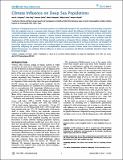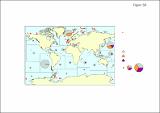Por favor, use este identificador para citar o enlazar a este item:
http://hdl.handle.net/10261/11904COMPARTIR / EXPORTAR:
 SHARE SHARE
 CORE
BASE CORE
BASE
|
|
| Visualizar otros formatos: MARC | Dublin Core | RDF | ORE | MODS | METS | DIDL | DATACITE | |

| Campo DC | Valor | Lengua/Idioma |
|---|---|---|
| dc.contributor.author | Company, Joan B. | - |
| dc.contributor.author | Puig, Pere | - |
| dc.contributor.author | Sardà, Francisco | - |
| dc.contributor.author | Palanques, Albert | - |
| dc.contributor.author | Latasa, Mikel | - |
| dc.contributor.author | Scharek, Renate | - |
| dc.date.accessioned | 2009-03-27T13:51:45Z | - |
| dc.date.available | 2009-03-27T13:51:45Z | - |
| dc.date.issued | 2008-01-16 | - |
| dc.identifier.citation | PLoS ONE 3(1): e1431 (2008) | en_US |
| dc.identifier.issn | 1932-6203 | - |
| dc.identifier.uri | http://hdl.handle.net/10261/11904 | - |
| dc.description | 8 pages, 5 figures.-- PMID: 18197243 [PubMed].-- PMCID: PMC2174526.-- Supporting information (Suppl. figures S1-S9) available at: https://doi.org/10.1371/journal.pone.0001431 | en_US |
| dc.description.abstract | Dynamics of biological processes on the deep-sea floor are traditionally thought to be controlled by vertical sinking of particles from the euphotic zone at a seasonal scale. However, little is known about the influence of lateral particle transport from continental margins to deep-sea ecosystems. To address this question, we report here how the formation of dense shelf waters and their subsequent downslope cascade, a climate induced phenomenon, affects the population of the deep-sea shrimp Aristeus antennatus. We found evidence that strong currents associated with intense cascading events correlates with the disappearance of this species from its fishing grounds, producing a temporary fishery collapse. Despite this initial negative effect, landings increase between 3 and 5 years after these major events, preceded by an increase of juveniles. The transport of particulate organic matter associated with cascading appears to enhance the recruitment of this deep-sea living resource, apparently mitigating the general trend of overexploitation. Because cascade of dense water from continental shelves is a global phenomenon, we anticipate that its influence on deep-sea ecosystems and fisheries worldwide should be larger than previously thought | en_US |
| dc.description.sponsorship | Supported by the US Office of Naval Research grant N00014-04-1-0379 (PP; current meter data) and the Spanish Ministerio de Educación y Ciencia grant REN 2002-04151-C02-01 (ML; sediment trap data) | en_US |
| dc.format.extent | 382184 bytes | - |
| dc.format.mimetype | application/pdf | - |
| dc.language.iso | eng | en_US |
| dc.publisher | Public Library of Science | en_US |
| dc.relation.isversionof | Publisher's version | - |
| dc.rights | openAccess | en_US |
| dc.subject | Euphotic zone | en_US |
| dc.subject | Lateral particle transport | en_US |
| dc.subject | Deep-sea ecosystems | en_US |
| dc.subject | Aristeus antennatus | en_US |
| dc.subject | Deep-sea shrimp | en_US |
| dc.subject | Climate influence | en_US |
| dc.subject | Fisheries | en_US |
| dc.subject | Overexploitation | en_US |
| dc.subject | Population dynamics | en_US |
| dc.subject | Oceanography | en_US |
| dc.title | Climate influence on deep sea populations | en_US |
| dc.type | artículo | en_US |
| dc.identifier.doi | 10.1371/journal.pone.0001431 | - |
| dc.description.peerreviewed | Peer reviewed | en_US |
| dc.relation.publisherversion | https://doi.org/10.1371/journal.pone.0001431 | en_US |
| dc.identifier.pmid | 18197243 | - |
| dc.type.coar | http://purl.org/coar/resource_type/c_6501 | es_ES |
| item.grantfulltext | open | - |
| item.cerifentitytype | Publications | - |
| item.openairecristype | http://purl.org/coar/resource_type/c_18cf | - |
| item.languageiso639-1 | en | - |
| item.fulltext | With Fulltext | - |
| item.openairetype | artículo | - |
| Aparece en las colecciones: | (ICM) Artículos | |
Ficheros en este ítem:
| Fichero | Descripción | Tamaño | Formato | |
|---|---|---|---|---|
| Company_et_al_2008.pdf | Main text file | 373,23 kB | Adobe PDF |  Visualizar/Abrir |
| journal.pone.0001431.s001.ps | Fig. S1 | 1,82 MB | Postscript | Visualizar/Abrir |
| journal.pone.0001431.s002.ps | Fig. S2 | 954,5 kB | Postscript | Visualizar/Abrir |
| journal.pone.0001431.s003.ps | Fig. S3 | 977,28 kB | Postscript | Visualizar/Abrir |
| journal.pone.0001431.s004.ps | Fig. S4 | 966,21 kB | Postscript | Visualizar/Abrir |
| journal.pone.0001431.s005.ps | Fig. S5 | 1,05 MB | Postscript | Visualizar/Abrir |
| journal.pone.0001431.s006.ps | Fig. S6 | 679,8 kB | Postscript | Visualizar/Abrir |
| journal.pone.0001431.s007.ps | Fig. S7 | 905,24 kB | Postscript | Visualizar/Abrir |
| journal.pone.0001431.s008.ps | Fig. S8 | 4,46 MB | Postscript | Visualizar/Abrir |
| journal.pone.0001431.s009.pdf | Fig. S9 | 1,06 MB | Adobe PDF |  Visualizar/Abrir |
CORE Recommender
PubMed Central
Citations
15
checked on 04-abr-2024
SCOPUSTM
Citations
187
checked on 15-abr-2024
WEB OF SCIENCETM
Citations
178
checked on 25-feb-2024
Page view(s)
463
checked on 14-abr-2024
Download(s)
515
checked on 14-abr-2024
Google ScholarTM
Check
Altmetric
Altmetric
Artículos relacionados:
NOTA: Los ítems de Digital.CSIC están protegidos por copyright, con todos los derechos reservados, a menos que se indique lo contrario.
